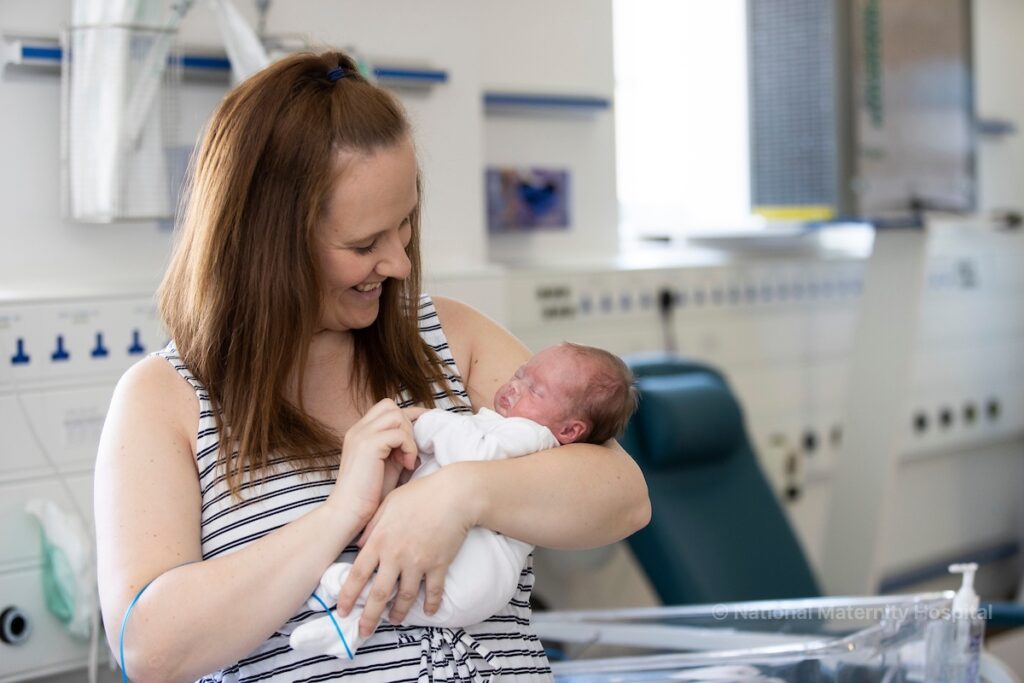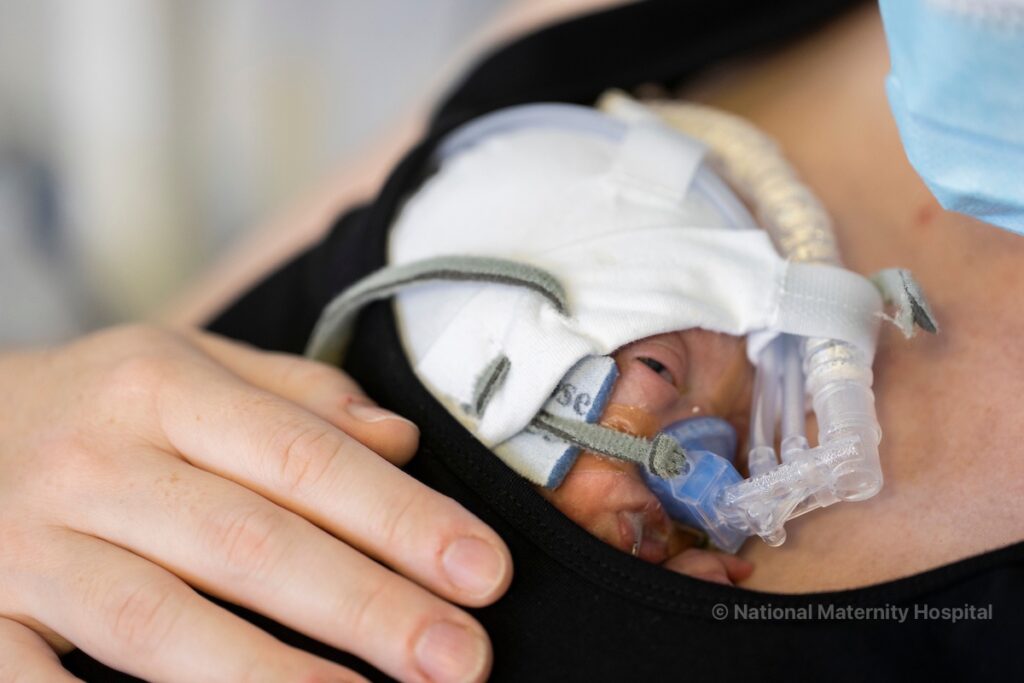In the NICU - Your baby
Communication
Babies, no matter how small, communicate
As you get to know your baby, you will recognise their personality. Being with your baby is your first step to getting to know them. Allow yourself time to get used to your baby and their new environment. It takes time to get to know your little baby.
Interpreting your baby’s movements and expressions
Your baby’s behaviour, including body movements and facial expressions, are their voice.
By looking at your baby’s behaviour signals you will know:
- When they are ready to communicate with you.
- When they want to rest.
- How they comfort themselves.
Learning your baby’s language can take time as the machines and the beeping noises can sometimes be overwhelming. As you get more used to the NICU environment, you will start to concentrate more on your baby and what they can do. For example, do they show signs that they want to interact and socialise (‘Positive Approach’ behaviours) with you or that they need a rest (‘Time-Out’ signals)?
Interacting with your baby
- Your baby will guide on what they like or do not like. Sometimes it is just not the right time and it is ok to say “No!”
- Watch for your baby’s signals inviting you to interact and to see how they respond to each interaction, see ‘Understanding how your baby communicates with you’.
- Interactions include listening, responding, touch, talking, looking, comfort care measures and care-giving activities as outlined in the next chapter.
- Be guided by your baby and what they like and what they don’t like. Respect the signals they give you.
- If an interaction is appropriate, it will cause your baby to seek it out and move towards it. They will enjoy it without becoming too tired or overwhelmed, i.e. they will display ‘Positive approach’ behaviours’.
- If an interaction is inappropriate in its timing, is too much or too strong it will cause your baby to defend against it, i.e. they will display ‘Time-Out’ signals.
“Be guided by your baby and what they like and don’t like. Respect the signals your baby gives you.”

Did You Know?
The NIDCAP philosophy and approach has helped us understand the behaviour of preterm babies knowing when they need time to rest and play. This has changed the way fragile babies are cared for especially in terms of understanding their developmental needs.
The Newborn Individualised Developmental Care and Assessment Programme (NIDCAP) model of care was developed 1994 by Heideleise Als and colleagues in the USA. For more information see www.nidcap.org.
Pace things slowly.
Preterm or unwell babies can be slow to respond so allow plenty of time to see how your baby responds. It can take up to 30 seconds for a preterm baby to respond.
- Introduce things one at a time. Your baby’s senses may not be fully developed yet. Some preterm or unwell babies might only be able to take in and respond to one interaction at a time, e.g. either touch or sound (e.g. listening to your voice) or vision (e.g. looking at you) or movement (e.g. being picked up).
- Do not be discouraged if your baby is not able to cope with things such as holding and talking, or moving and touching, or listening and looking at you, all at the same time. It is simply that they cannot process all the sensory information they are getting together just yet, see ‘Sensory development’ LINK.
- Ask your baby’s nurse or therapist for help on how much interaction is appropriate for your baby. This may vary depending on your baby’s age, and it can change depending on the time of day and how your baby is at any given time.
- For example, in the very early days, your baby may not like to be touched or picked up as this may be too stressful, but your baby may enjoy listening to your voice or looking at your face. This means that your baby needs more time to feel well enough to be picked up.
- When your baby is first ready for contact, they may only like their hand or foot to be held.
 When interacting with your baby, remember the following:
When interacting with your baby, remember the following:
- Make sure your hands are clean before touching your baby, see ‘Infection control measures’.
- Try to ensure a quiet environment, so that all your baby has to focus on is your interaction.
- Avoid bright lights and loud noises.
- Try to warm your hands.
- Use a gentle approach.
- Greet and talk to your baby to let them know that you are there and to get them ready for the interaction.
- If your baby is in an incubator, be gentle when opening and closing the incubator doors.
- Watch your baby and respond to their signals as outlined above.
- Do not use light feathery stroking movements as babies may find this ticklish and irritating. Think of it like a hand hug – firm yet gentle and comforting.


